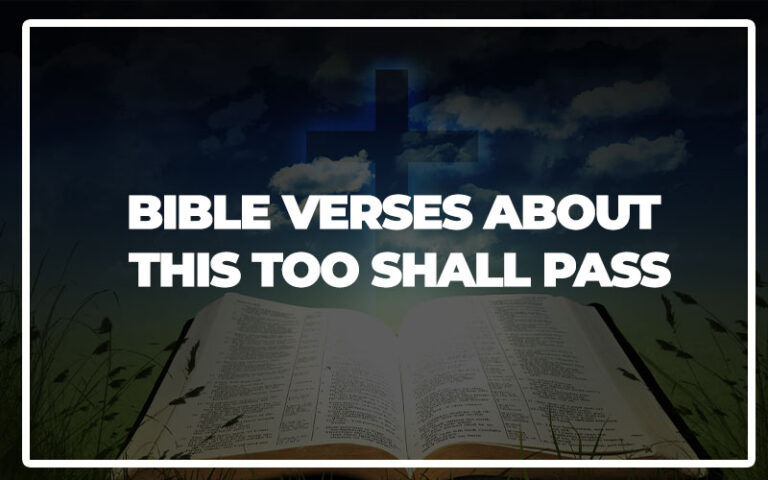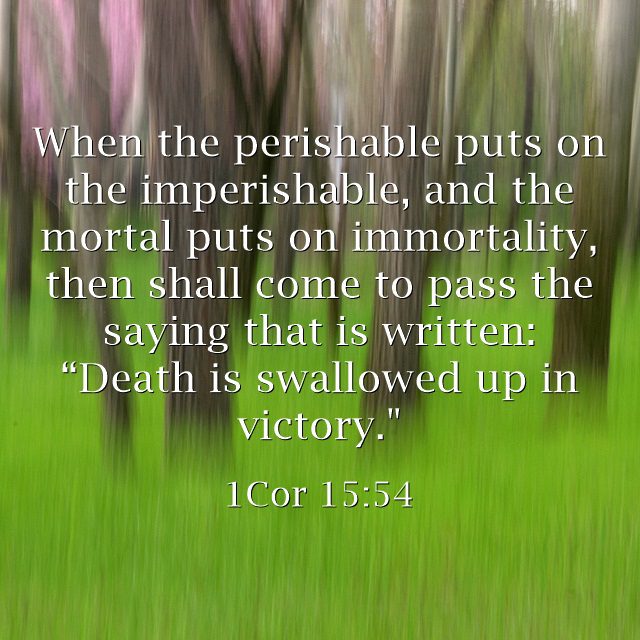Bible Verse This Too Shall Pass Kjv

In moments of profound joy and unbearable sorrow, humanity has consistently sought solace and perspective from sources of ancient wisdom. One such source, often misattributed as a direct quote from the King James Version (KJV) of the Bible, is the phrase “This too shall pass.” While not explicitly found in that exact wording within the KJV, the sentiment echoes throughout scripture and has offered comfort and a sense of temporal perspective to countless individuals facing life's tumultuous waves.
The enduring appeal of this idea—that both good times and bad are fleeting—stems from its power to reframe our experiences. It's a reminder that neither suffering nor happiness is permanent, offering a beacon of hope during hardship and a call to humility during success. This article delves into the origins of this widely adopted maxim, its relationship to biblical themes, and its continued relevance in the modern world.
Origins and Biblical Echoes
The exact phrase “This too shall pass” doesn’t appear verbatim in the KJV or any other standard translation of the Bible. However, the concept it embodies permeates several biblical passages.
Perhaps the closest parallel is found in 2 Corinthians 4:17-18: "For our light affliction, which is but for a moment, worketh for us a far more exceeding and eternal weight of glory; While we look not at the things which are seen, but at the things which are not seen: for the things which are seen are temporal; but the things which are not seen are eternal." This verse highlights the transient nature of earthly suffering compared to the promise of eternal glory.
Other verses, like Psalm 30:5 (“Weeping may endure for a night, but joy cometh in the morning”) and Ecclesiastes 3:1-8 (which speaks of a time for everything), similarly underscore the cyclical nature of life and the impermanence of specific circumstances. These passages, while not using the specific phrase, contribute to the biblical foundation upon which the modern saying rests.
The Persian King and Ring Lore
While the biblical connection is thematic, the popular anecdote associated with "This too shall pass" often involves a Persian king. The story typically recounts a powerful ruler who asks his wise men to create a ring that will make him happy when he is sad and sad when he is happy.
After much deliberation, they present him with a simple ring inscribed with the phrase "This too shall pass." When the king is overcome with joy, the ring reminds him of the fleeting nature of happiness, preventing him from becoming arrogant. When he is plunged into despair, the ring offers solace, reminding him that his suffering is temporary. Though likely apocryphal, this narrative further solidified the phrase's widespread appeal.
Psychological and Spiritual Significance
The phrase’s enduring popularity can be attributed to its profound psychological benefits. In times of crisis, it offers a crucial perspective shift, helping individuals to avoid feeling overwhelmed by their present circumstances. It encourages resilience by reinforcing the idea that even the most challenging situations are temporary.
Dr. Anya Sharma, a clinical psychologist, notes, "The 'This too shall pass' mentality is a powerful cognitive tool. It allows us to practice detachment from our immediate emotions, fostering a sense of control and hope." She adds, “It aligns with principles of mindfulness and acceptance, crucial for managing stress and anxiety.”
Spiritually, the phrase encourages humility and gratitude. During periods of success and happiness, it serves as a reminder to remain grounded and appreciative, recognizing that these moments are not guaranteed and should be cherished.
Modern Applications and Interpretations
In contemporary society, “This too shall pass” continues to resonate across diverse contexts. From personal struggles with illness or loss to global crises like economic downturns or pandemics, the phrase offers a universal message of hope and resilience.
Social media platforms are rife with examples of individuals sharing the phrase as a source of encouragement during challenging times. Motivational speakers and self-help gurus often incorporate the sentiment into their teachings, emphasizing its power to promote mental and emotional well-being.
Criticisms and Nuances
While generally beneficial, it's important to acknowledge potential drawbacks. Some critics argue that over-reliance on the phrase can lead to a passive acceptance of difficult situations, hindering proactive problem-solving. Others suggest that it can minimize the genuine pain and suffering experienced by individuals, dismissing their emotions as fleeting.
Therefore, it's crucial to use the phrase judiciously, balancing its message of hope with the need for active engagement and emotional validation. It should serve as a source of strength, not a substitute for seeking support or taking necessary action to address challenging circumstances.
Looking Forward
The enduring legacy of "This too shall pass," even if misattributed to the KJV in its exact form, lies in its timeless message of hope, resilience, and perspective. As long as humanity faces both joy and sorrow, triumph and adversity, the sentiment will continue to offer comfort and a reminder of the cyclical nature of life.
Whether derived from biblical themes, ancient folklore, or personal experience, the phrase serves as a valuable tool for navigating life's inevitable challenges. By embracing its message with mindful awareness and balanced perspective, individuals can find strength and solace in the knowledge that, indeed, this too shall pass.


















